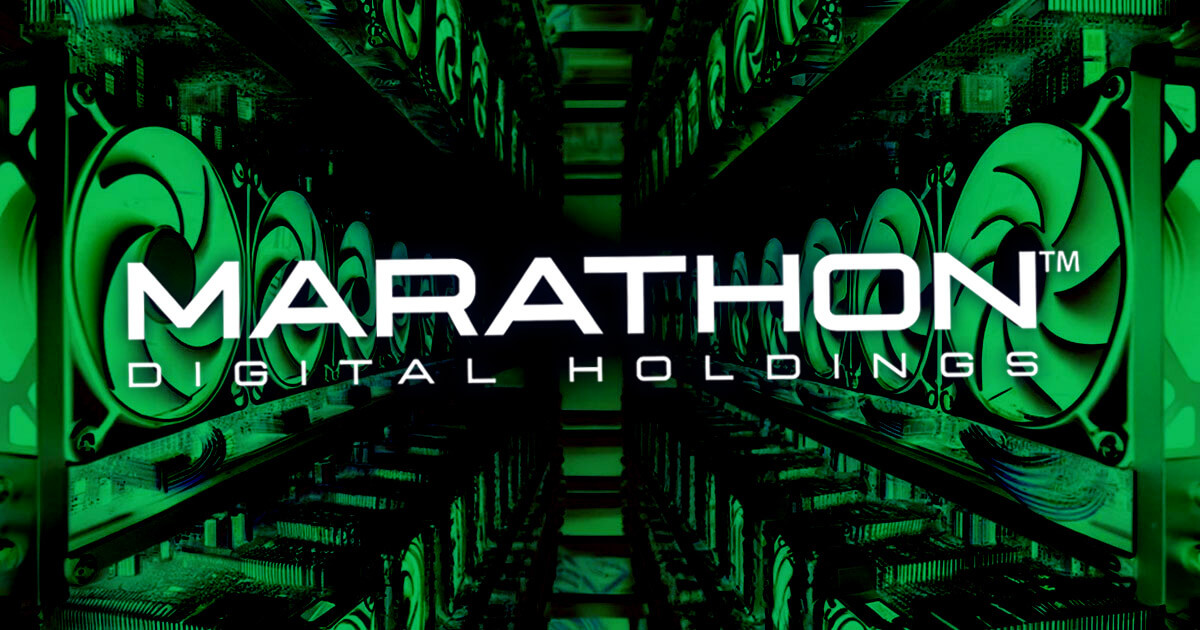Bipartisan crypto support within the US government is increasing, with significant implications for the future of crypto regulation and policy. While Republicans still dominate the pro-crypto side of the aisle, the negative sentiment toward the industry appears to be deflating.
In total, 310 US politicians strongly support the crypto industry, while only 41 are firmly against it. Theoretically, a 2/3rds majority for the Republicans in both houses would be enough to pass any pro-crypto legislation as it stands.
Based on provided data from Stand With Crypto (SWC), here’s a comprehensive overview of the current congressional landscape regarding crypto legislation:
Senate:
– Republicans: 37 senators are strongly pro-crypto
– Democrats: 6 senators are strongly pro-crypto
– Republicans: 2 senators are strongly against crypto
– Democrats: 10 senators are strongly against crypto
House of Representatives:
– Republicans: 201 representatives are strongly pro-crypto
– Democrats: 62 representatives are strongly pro-crypto
– Republicans: 3 representatives are strongly against crypto
– Democrats: 26 representatives are strongly against crypto
Totals:
– Republicans: 238 representatives are strongly pro-crypto
– Democrats: 68 representatives are strongly pro-crypto
– Republicans: 5 representatives are strongly against crypto
– Democrats: 36 representatives are strongly against crypto
Note the SWC data includes both sitting and challenger candidates for both Congress and the Senate.
The crypto industry is witnessing a significant shift in political support within the US Congress, with both chambers showing varying degrees of enthusiasm for crypto-friendly policies.
There’s a notable partisan divide in the Senate on crypto issues. A substantial number of Republican senators have positioned themselves as strongly pro-crypto, indicating a willingness to support legislation that favors the industry.
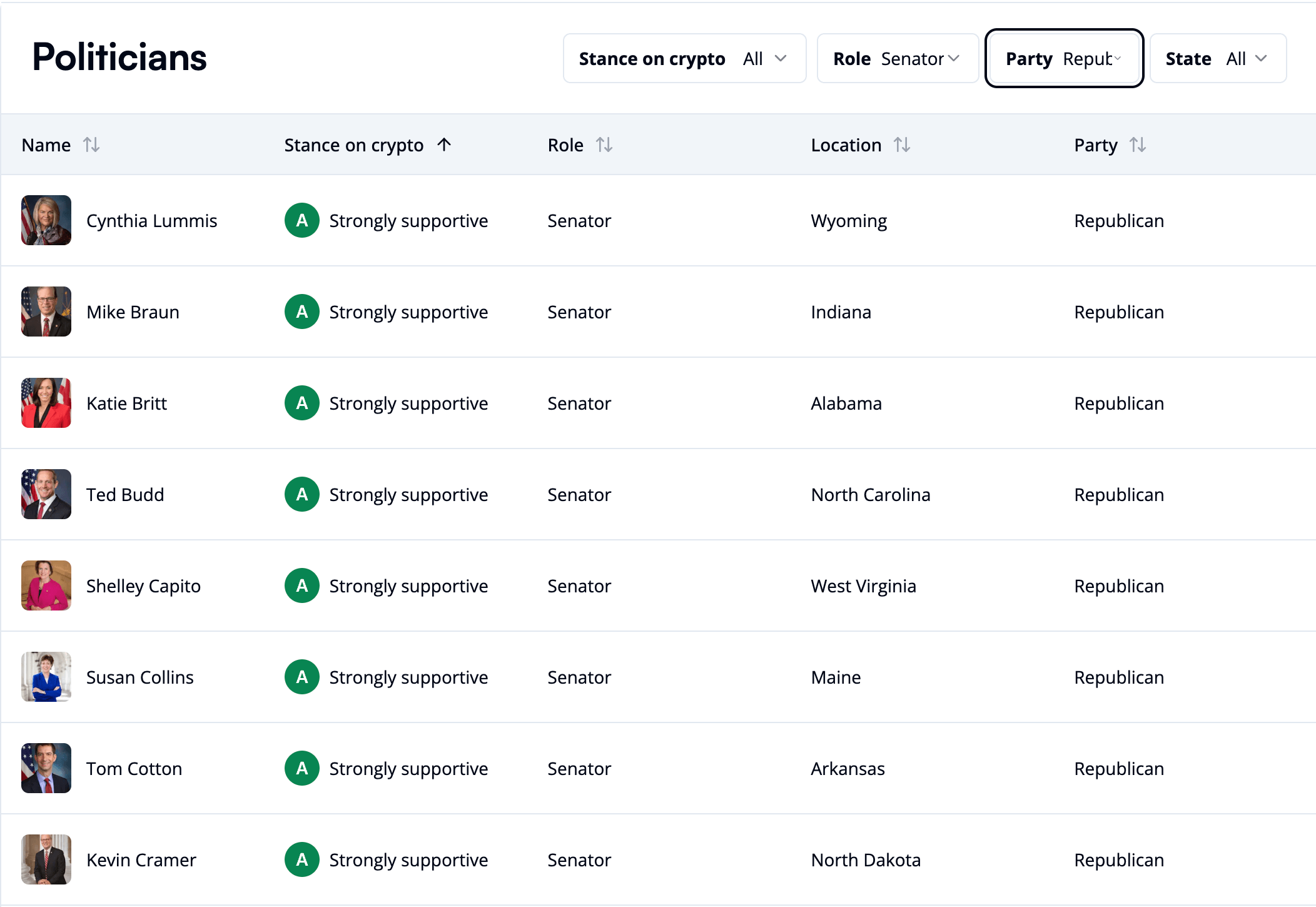
While there is some support on the Democratic side, a slightly larger contingent of senators has taken a strongly anti-crypto stance. This split suggests that passing comprehensive crypto legislation in the Senate may face challenges, requiring bipartisan cooperation to overcome potential obstacles.
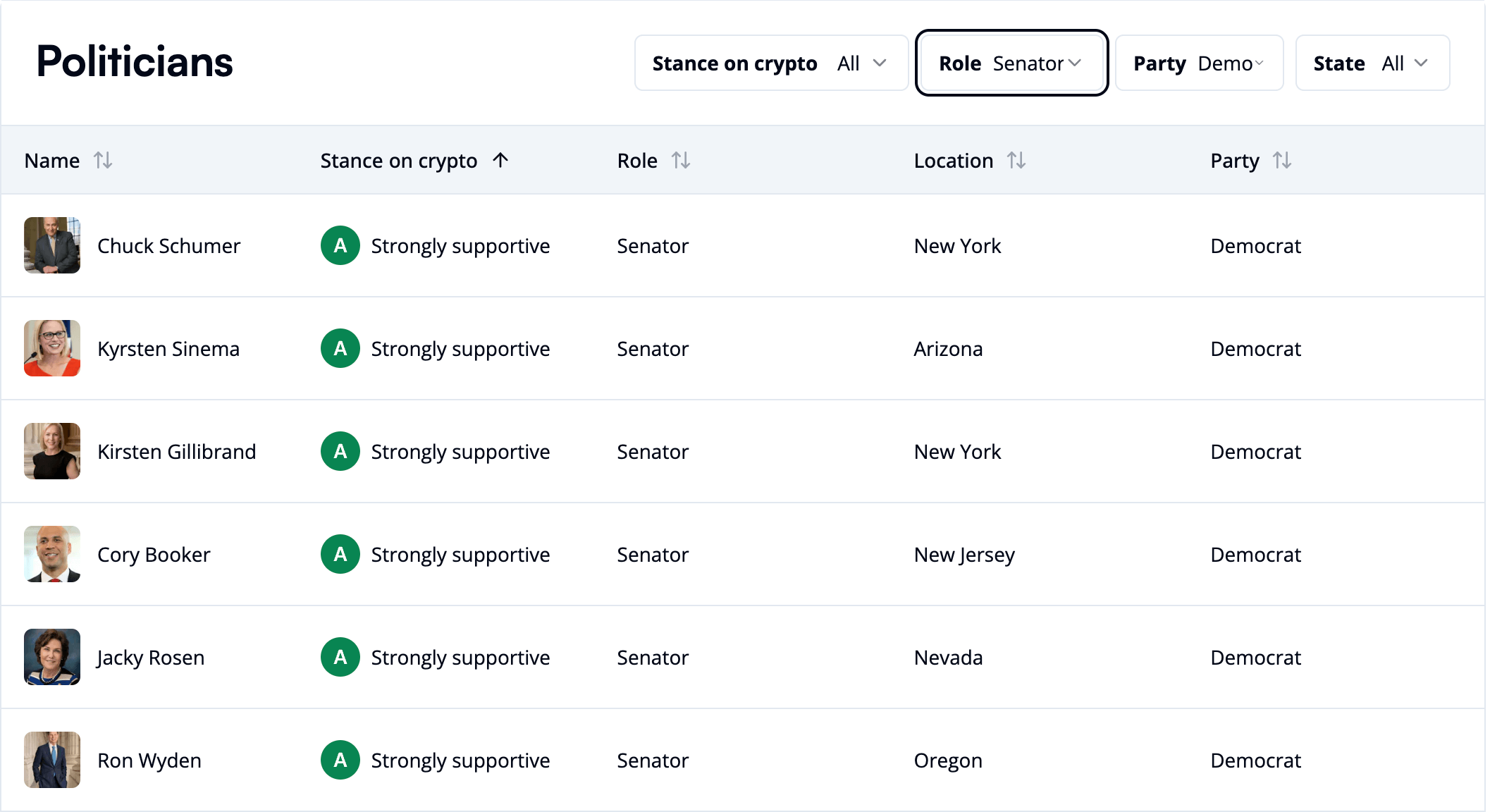
The House of Representatives presents a more favorable environment for crypto-related bills. Both Republican and Democratic representatives have shown strong support for the crypto industry, with a significant majority of Republicans and a notable number of Democrats aligning themselves as pro-crypto. This bipartisan support in the House suggests a higher likelihood of crypto-friendly legislation passing in this chamber.
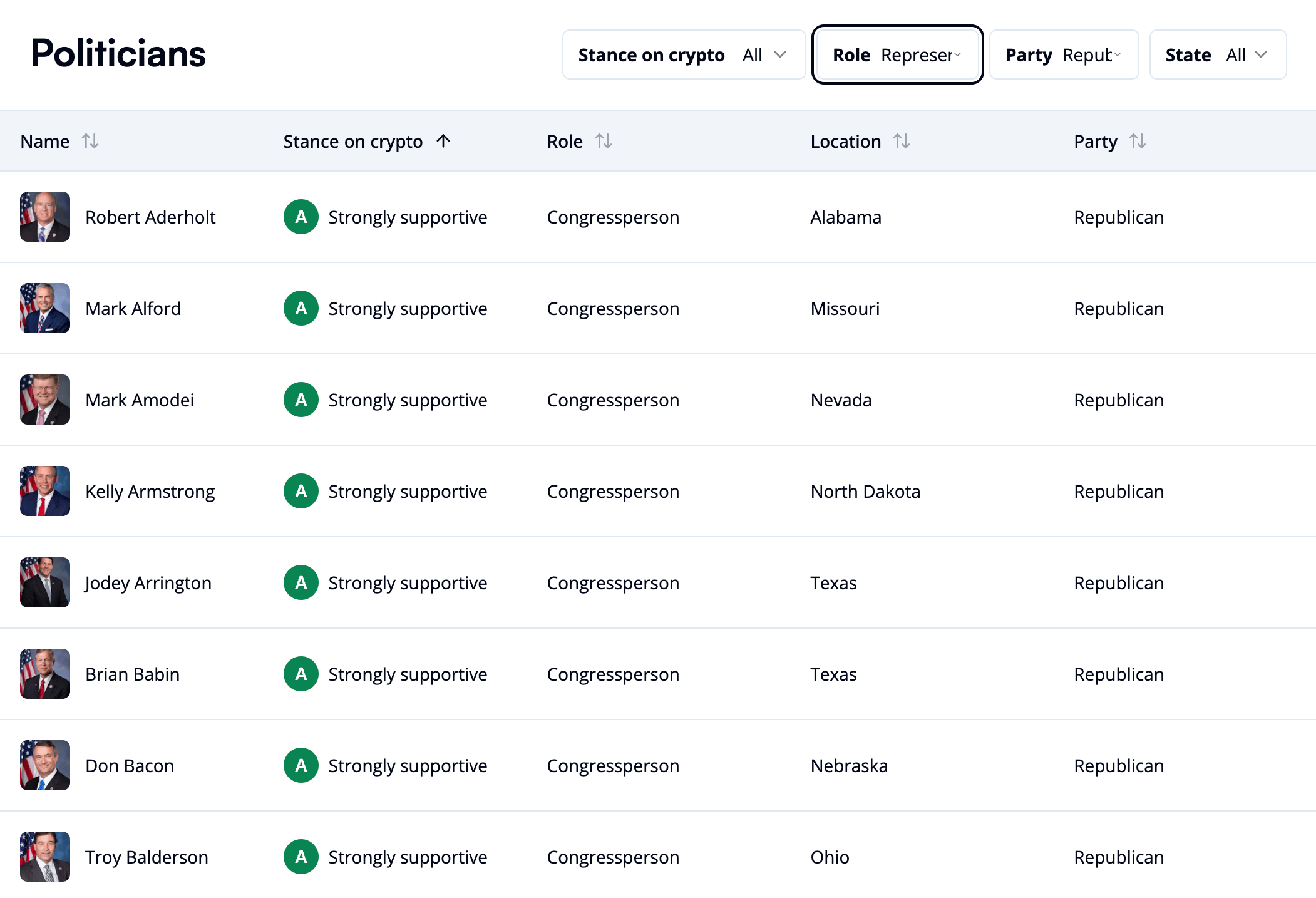
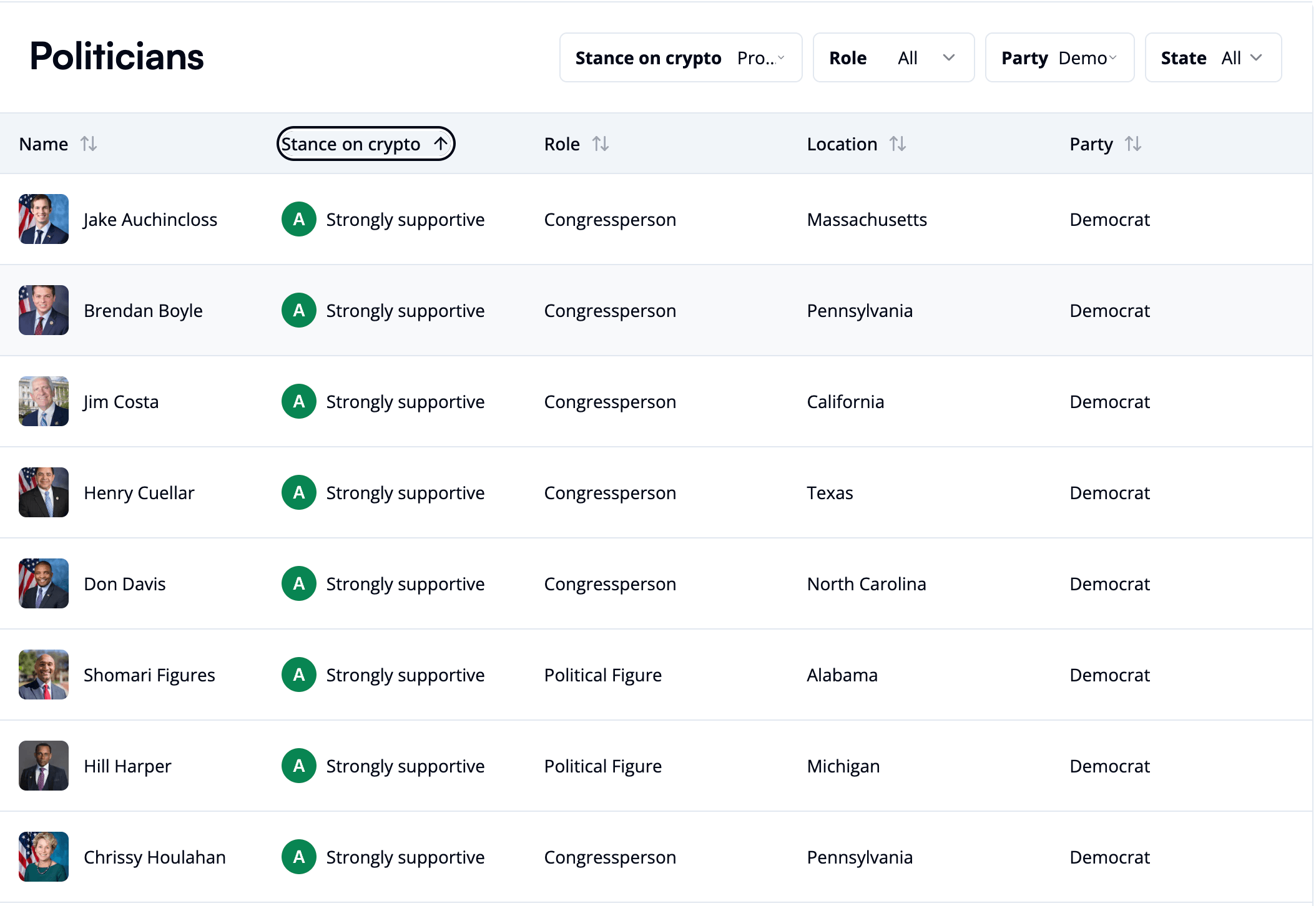
Interestingly, the opposition to crypto in the House is relatively small, with only a handful of representatives from both parties (29) taking a strongly anti-crypto position. This minimal resistance could facilitate the passage of crypto-related bills, provided they gain sufficient backing from the pro-crypto majority.
The overall congressional landscape indicates a growing recognition of crypto’s importance, with many lawmakers seeing potential benefits in fostering innovation and maintaining US competitiveness in the global financial technology sector. However, concerns about consumer protection, economic stability, and regulatory oversight continue to shape the debate.
Recent legislative actions, such as the passage of the Financial Innovation and Technology for the 21st Century Act (FIT21) in the House, demonstrate the increasing momentum behind crypto-friendly policies. This bill, which aims to establish a regulatory framework for digital assets, garnered support from both Republicans and Democrats, highlighting the bipartisan nature of crypto legislation in the lower chamber.
As the 2024 election approaches, crypto will likely become an increasingly important issue in political campaigns and policy discussions. The industry’s growing influence is evident in the formation of crypto-focused Political Action Committees (PACs) and their substantial fundraising efforts for the upcoming elections.
In conclusion, while the Senate presents a more challenging environment for crypto legislation due to the partisan divide, the House of Representatives appears more receptive to pro-crypto initiatives. This dynamic suggests that the path forward for comprehensive crypto regulation may require careful navigation of the different stances in both chambers, focusing on building bipartisan consensus to achieve meaningful legislative outcomes. However, with the election coming up in November it is possible many of the politicians who are marked as pending or neutral by SWC could choose a side. Further, a change in government could lead to a considerably more crypto-friendly landscape as things stand.







